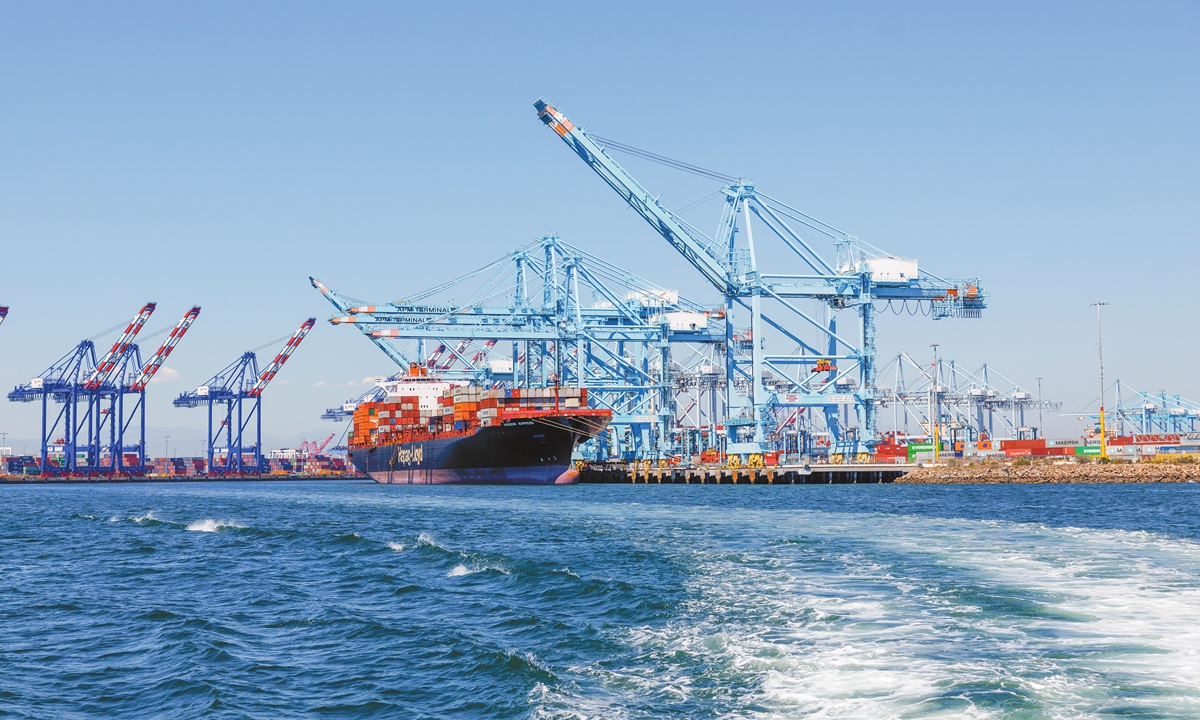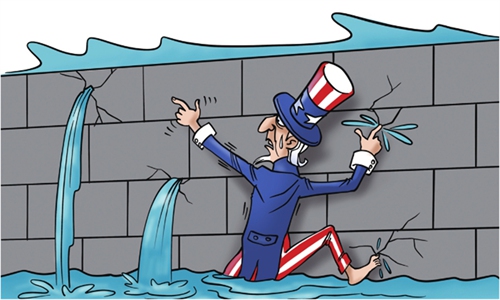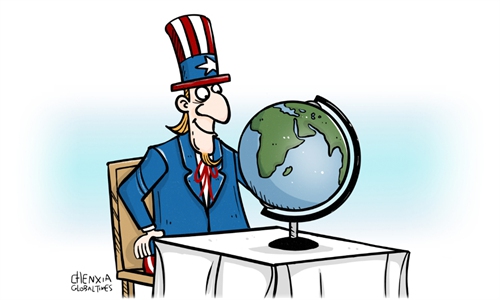
A view of the Port of Los Angeles in the US Photo: VCG
Editor's Note:
The recent high-level economic and trade talks between China and the US have resulted in a 90-day pause of most tariffs on each other's goods. The two parties also agreed to establish a mechanism to continue discussions about economic and trade relations. What significance does the outcome have for both parties and the world? How can the two countries keep the current momentum of trade talks, and what challenges could be expected? Global Times (GT) reporter Wang Wenwen interviewed Bruce Reynolds (Reynolds), a professor emeritus from the University of Virginia, over these issues.
This is the 13th piece of the "Wisdom on China&US" series.

Bruce Reynolds Photo: Courtesy of Reynolds
GT: How do you analyze the outcome of the China-US economic and trade talks?
Reynolds: Wall Street loved this outcome. It's a pullback from a destructive trade cut-off, for "an initial period" of 90 days. They agreed to talk, and talking is the essence of diplomacy. But there's many a slip twixt the cup and the lip.
GT: There is a perception that the results of the trade talk show that decoupling between China and the US is impossible. Do you agree?
Reynolds: Multiple studies on decoupling - from the European Central Bank, the Cato Institute, Adam Posen of the Peterson Institute and the IMF - all make clear how massively destructive it would be for the US and China to completely decouple their intertwined economies. Jobs, GDP growth, and human welfare in general would literally disintegrate. The IMF states that full trade and technology decoupling could lower world GDP by as much as seven percent. Posen calls investment decoupling infeasible - stating that it would require the creation by the US government of a "commercial police state." I'd agree that if political leaders are rational, it's impossible for our countries to decouple. The pullback by both sides at the trade talks was rational.
GT: China has called for equal dialogue with the US regarding the tariffs. Since the US initiated the tariff war, China has adhered to its principles and effectively implemented countermeasures. How do you comment on China's stance?
Reynolds: China's stance was admirable. While many countries reacted to the US tariff onslaught by scrambling to Washington to "make a deal," China remained strikingly silent, and the US side blinked. The message was clear: "We will not be bullied!"
I do believe that America and other countries will gradually accept China as an equal trading partner. Some other countries criticize China as "mercantilist," unfairly using exports to grow the economy. But, in fact, the share of exports in GDP, which reached one third in 2006, has now fallen to roughly 20 percent.
This, in part, reflects appropriate adjustments by China in the renminbi exchange rate. The shift also stems from government policy measures that are gradually expanding other components of GDP - particularly household consumption. Chinese policymakers refer to this as a shift from "international circulation" to "domestic circulation."
GT: How can the US and China maintain the current momentum of trade talks, and what challenges could be expected?
Reynolds: Building on the encouraging outcome of the Geneva meeting, several practical steps can reliably move our two countries in the right direction. First, it's critical to rebuild robust channels of communication, including lower-level working groups, between the two governments. The Geneva agreement explicitly calls for exactly that. Second, any step that strengthens our economic relationship creates a constituency in each country that will reliably favor cooperation over conflict. American leaders need to calm anxieties about competition from China by stressing that every time an American business exports or imports, both sides of the transaction will benefit. That's the beauty of free trade.
My third recommendation is the one dearest to my own heart. I'm a college professor and have studied China, taught about China and traveled to China over the course of more than 50 years. In that time I've recruited many Chinese students to study at the University of Virginia, and watched with pleasure as they put to use what they learned there. They become human linkages between the two countries. I've also led countless groups of American students to China. Through their direct experiences, they become ambassadors for China back home. In 10 or 20 years, some of them will be working in Congress or the White House as China specialists with actual, on-the-ground knowledge of China.
All these informal, non-governmental, person-to-person exchanges will form the bedrock for the relationship between our two countries over the coming decades. Let's expand educational and cultural exchanges wherever we can. The US should be granting more visas to Chinese students, rather than rescinding them. Chinese employers should welcome returning students and capitalize on their direct understanding of America. Unfortunately, the Trump administration's recent Harvard ban illustrates how it is recklessly assaulting, not just trade ties, but so many other aspects of our relationship with the world. The damage will take the US years or decades to repair.
GT: Late last year, when former US president Jimmy Carter passed away, you commended his courage to push for the establishment of diplomatic relations between the US and China, saying that it was the "right thing" to do. What kind of courage do you think the current US administration should have, and what kind of "right things" should it do regarding its relations with China?
Reynolds: The 1979 move to diplomatic recognition created a new relationship between two countries of vastly unequal power. The US was nearing its peak as a dominant world power, while China was just entering its "Miracle Growth" years. What must come now is a further step in "diplomatic recognition" - formal, explicit ways to recognize that China is now a world power too.
Another way to put this is to say: America must accept that it's not the No.1 country in the world - that it's just one among several large and powerful countries, including China. America needs the courage not just to accept a rising China, but to gradually shed the role of world policeman - because it can no longer manage that task. But recognizing this - laying out that reality to the electorate - will require courage from our political leaders. I can suggest four "right things" through which America could accord "great power diplomatic recognition" to China. First, accept China as an equal partner in world governance - such as the IMF and WTO - rather than a junior partner. Team up, explicitly, to defuse third-country conflicts - like those between Ukraine and Russia, India and Pakistan and elsewhere. Second, commit to the principle that national sovereignty is sacred - that military force cannot be used to change existing national boundaries. Third, respect each other's geographic sphere of influence. Fourth, and most importantly, US defense spending must fall. A more realistic ambition would be simply to avoid military conflict in the near term. Still, if we don't imagine where we truly wish to be, we will surely never arrive there.


